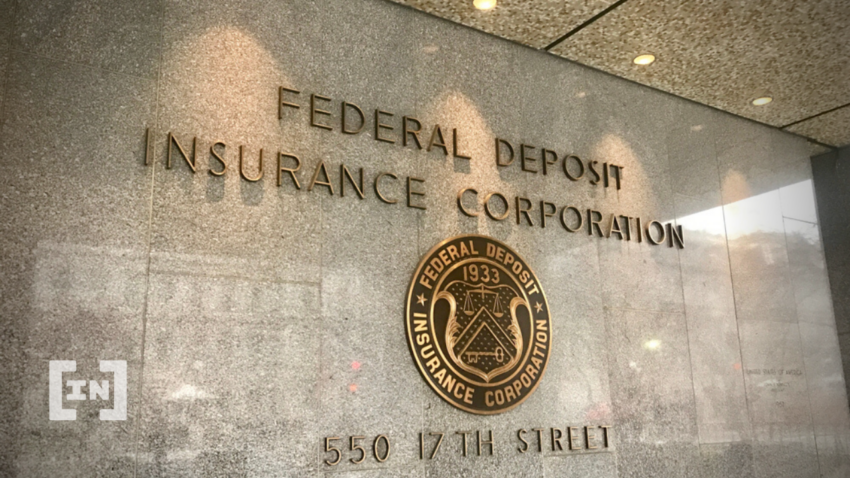The Federal Deposit Insurance Corporation (FDIC) issued a new advisory note on July 29 to restate that it does not insure digital assets.
The regulator was forced to release this note after Voyager had claimed that its deposits were insured by the regulator.
According to the regulators, the statements from these crypto firms could cause confusion and harm customers.
The regulators added,
Deposit insurance does not apply upon the failure of a non–bank, such as a crypto company. In addition, deposit insurance does not protect consumers with non–deposit products such as stocks, bonds, mutual funds, securities, commodities, or crypto assets.
The FDIC also said it “is concerned about the risks of consumer confusion or harm arising from crypto assets offered by, through, or in connection with insured depository institutions (insured banks). Risks are elevated when a non-bank entity offers crypto assets to the non-bank’s customers, while also offering an insured bank’s deposit products.”
FDIC Wrote Voyager
FDIC had written a letter to Voyager where it pointed out that the company violated “Section 18(a)(4) of the Federal Deposit Insurance Act (“FDI Act”), 12 U.S.C. § 1828(a)(4), which prohibits any person from representing or implying that an uninsured deposit is insured.”
The regulator mandated the company to provide written confirmation to the Board of Governors and the FDIC within two days showing all the steps taken to rectify the misrepresentation.
But if the company thinks the statement about FDIC deposit insurance is true and accurate, it has to provide documents to back it up.
However, the regulators still reserve the right to take legal action against Voyager regardless of whether it complies with the requests in the letter.
Although it is open to accepting bids, the firm has already rejected FTX’s offer, calling it a low-ball offer. A creditor has also objected to its restructuring plan, proposing something different.
What do you think about this subject? Write to us and tell us!
Disclaimer
In adherence to the Trust Project guidelines, BeInCrypto is committed to unbiased, transparent reporting. This news article aims to provide accurate, timely information. However, readers are advised to verify facts independently and consult with a professional before making any decisions based on this content. Please note that our Terms and Conditions, Privacy Policy, and Disclaimers have been updated.


